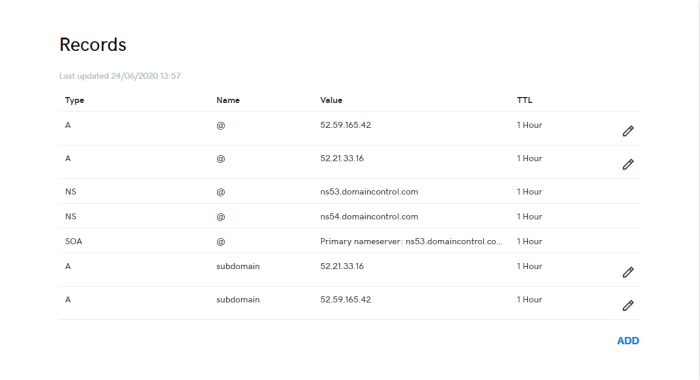
Short vs long domain names is a captivating subject that deeply impacts online branding and user interaction. The length of a domain name can significantly influence how easily potential customers remember it, type it, and perceive it within advertising contexts. Understanding these nuances is essential for anyone looking to carve out a successful online presence.
In today’s digital landscape, the choice between short and long domain names extends beyond mere aesthetics. It involves strategic considerations that affect memory recall, marketing effectiveness, and even consumer trust. As we dive into this topic, we’ll explore the implications of domain name length in various aspects of online business, including marketing strategies and e-commerce visibility.
Understanding Domain Names

In the digital landscape, domain names play a crucial role in establishing online identity and branding. The choice between short and long domain names can significantly influence brand recognition, user experience, and overall marketing effectiveness. This exploration dives into the importance of these distinctions and their implications for businesses.The length of a domain name can directly affect user memory and typing ease.
Short domain names are typically easier to remember and faster to type, which enhances user experience and reduces the chances of errors when entering the URL into a browser. Conversely, longer domain names may provide more descriptive content but can complicate the user’s ability to recall and accurately input the name. A streamlined approach to domain naming can simplify brand recall, fostering stronger connections with the target audience.
Significance of Domain Name Length in Branding
When assessing the impact of domain name length on branding, it’s essential to consider user perception and visibility in advertising campaigns. Short domain names often convey a sense of professionalism and modernity, making them more appealing in digital marketing contexts. In contrast, longer names may come across as more descriptive, which can be beneficial when conveying specific products or services.
The following points illustrate the differences in visibility and user perception between short and long domain names:
- Brand Recall: Shorter names are often more memorable, allowing consumers to easily recall the brand when needed.
- Typing Efficiency: Users are less likely to misspell short domain names, leading to increased traffic and engagement.
- Marketing Impact: Short domains can stand out more effectively in advertisements, capturing attention and prompting user action.
- Search Engine Optimization: Although longer domain names can include s, short domains tend to rank better due to their simplicity and ease of use.
- Professional Image: Short domains are often perceived as more credible and trustworthy, enhancing brand reputation.
Short domain names enhance brand recall and typing efficiency, leading to better user engagement.
The contrasting implications of short versus long domain names extend to their usability in various marketing channels. Short names are easier to remember and promote, while longer names can provide context and detail. Ultimately, the choice of domain length should align with the brand’s goals, audience preferences, and overall marketing strategy.
Domain Names in Internet Marketing

In the realm of internet marketing, a well-chosen domain name serves as more than just an address; it is a vital asset that can significantly influence branding, user perception, and overall marketing success. A strong domain name not only enhances visibility but also establishes credibility and trust with potential customers. Understanding how to leverage domain names effectively can lead to substantial advantages in competitive markets.The selection of a domain name is a strategic process that requires careful consideration of various factors related to marketing efforts.
A good domain name is memorable, relevant, and reflects the brand identity, which can enhance search engine optimization () and user retention. Here are several strategies for selecting domain names that can boost marketing effectiveness:
Strategies for Selecting Domain Names
To create an effective domain name, consider the following strategies that can amplify your marketing initiatives:
- Keep it Short and Simple: Short domain names are easier to remember and type, minimizing the risk of typos and improving user experience.
- Incorporate s: Including relevant s can enhance and help your website rank higher in search results.
- Avoid Numbers and Hyphens: These can be confusing and easily misremembered, making your domain less accessible.
- Choose the Right Extension: While .com is the most recognized, other extensions like .net, .org, or industry-specific extensions can also convey professionalism.
- Check for Trademarks: Ensure your domain doesn’t infringe on existing trademarks to avoid legal issues and brand confusion.
Email marketing is enhanced by a strategic choice of domain names. The domain name used for email addresses can affect deliverability rates, brand recognition, and customer trust. A recognizable domain name in an email address not only legitimizes the communication but can also influence open and click-through rates significantly.
Influence of Domain Names on Email Marketing Effectiveness
The domain name used in email marketing campaigns plays a crucial role in driving engagement and establishing trust. Here are key aspects to consider:
- Domain Reputation: A reputable domain name increases the likelihood of emails landing in the inbox rather than the spam folder.
- Brand Consistency: Using a consistent domain across marketing channels ensures brand recognition and reinforces messaging.
- Personalization: Emails sent from a personalized domain name, like [email protected], increase perceived legitimacy and engagement.
- Mobile Compatibility: A mobile-friendly domain enhances accessibility, ensuring your emails are easily viewed on any device.
Evaluating the best domain name length is essential to align with target audience behavior. Research indicates that the ideal domain name length can significantly impact user recall and engagement, which is crucial for effective marketing. Here’s how to assess domain name length based on your audience:
Evaluating Domain Name Length Based on Audience Behavior
Determining the optimal domain name length requires an understanding of your target audience’s preferences and behaviors. Consider the following criteria:
- Audience Demographics: Younger audiences may favor shorter, catchy names, while older demographics might prefer more descriptive names.
- Industry Standards: Different industries may trend towards varying lengths; tech companies often use shorter domains, while e-commerce may lean towards longer, descriptive names.
- Search Behavior: Analyze how your audience searches for products or services; this can inform whether a longer or shorter domain suits their habits.
- Marketing Channels: For social media and mobile marketing, shorter domains are often more effective due to character limits and ease of sharing.
Shorter domain names tend to have higher recall, which is crucial for brand recognition and marketing effectiveness.
Domain Names and E-Commerce
In the world of e-commerce, the significance of a domain name extends far beyond mere identification; it plays a crucial role in establishing consumer trust, enhancing visibility, and influencing search engine rankings. A well-chosen domain name can set the tone for a business, instilling confidence in potential customers while also serving as a powerful tool for online marketing.Domain names are often the first impression a consumer has of a business.
A credible and professional domain name fosters trust, which is essential for online transactions where security and legitimacy are paramount. Consumers are likely to associate well-structured, memorable domain names with reliability, while poorly crafted names can lead to skepticism and deter purchases.
Impact of Domain Names on Consumer Trust
A strong correlation exists between the quality of a domain name and the level of consumer trust it engenders. Factors influencing this trust include:
- Professionalism: A domain that reflects the business’s brand and offerings enhances credibility.
- Memorability: Short and simple names are easier for customers to recall, promoting repeat visits.
- Security Indicators: Including terms like “secure” or using familiar domain extensions (e.g., .com) can signal safety to consumers.
The combination of these factors can significantly increase the likelihood of a consumer completing a purchase on an e-commerce platform.
Optimizing Domain Names for Online Store Visibility
Optimizing domain names is an essential strategy for improving visibility in a crowded online marketplace. To effectively enhance a domain’s impact, consider the following key practices:
- Inclusion: Incorporating relevant s related to the products or services can boost search engine visibility.
- Branding Consistency: Ensure the domain name aligns with the overall brand identity and messaging for cohesive marketing.
- Geographic Relevance: For local businesses, including geographic identifiers can attract a targeted audience.
These tactics collectively contribute to a more effective online presence, potentially increasing traffic and engagement on e-commerce sites.
Domain Names and Search Engine Rankings
The role of domain names in enhancing search engine rankings is a critical aspect of e-commerce strategies. Search engines consider several elements of domain names when ranking websites, including:
- Age of Domain: Older domains may rank higher due to accumulated authority and trust.
- Domain Length: Shorter domains are generally favored as they are easier for users to remember and share.
- Use of s: Domains that include relevant s can improve visibility in search results.
By understanding these elements, e-commerce businesses can leverage their domain names to achieve better rankings, ultimately driving more organic traffic to their online stores.
Summary
In summary, choosing the right domain name length is a vital decision in shaping your online identity. Whether you opt for a concise name that sticks in the mind or a longer, more descriptive option that conveys clarity, understanding the trade-offs can enhance your branding and marketing efforts. Ultimately, this choice can influence consumer trust and search engine rankings, making it an essential factor in your online strategy.
FAQ Overview
What are the advantages of short domain names?
Short domain names are easier to remember, type, and share, making them more user-friendly and effective in driving traffic.
Are long domain names less effective for ?
Long domain names are not inherently less effective for , but they may be harder for users to remember and share, potentially impacting traffic.
How can I choose the best domain name length for my audience?
Consider your target audience’s preferences, the nature of your business, and test different lengths to see which resonates best.
Do short domain names have a better brand recall?
Yes, short domain names are generally easier to recall, which can enhance brand recognition and retention.
Can a longer domain name still convey a strong brand message?
Absolutely, a longer domain can effectively convey detailed information about your brand, but it should remain clear and easy to understand.





